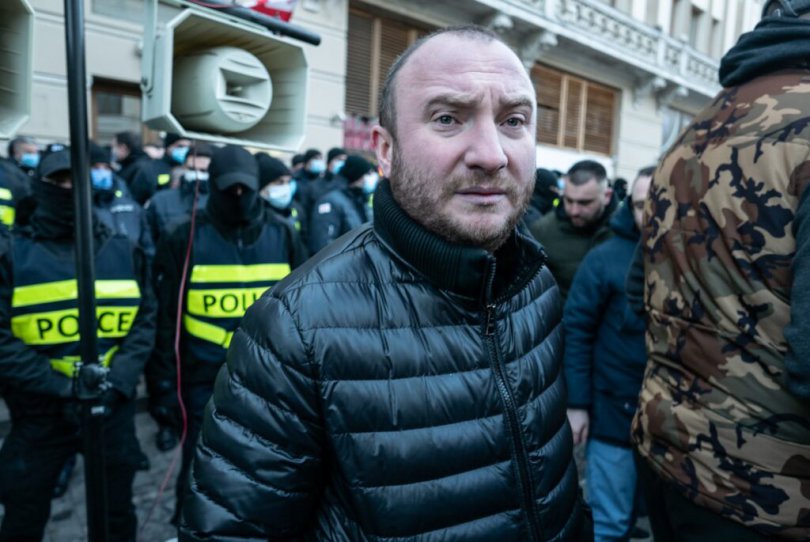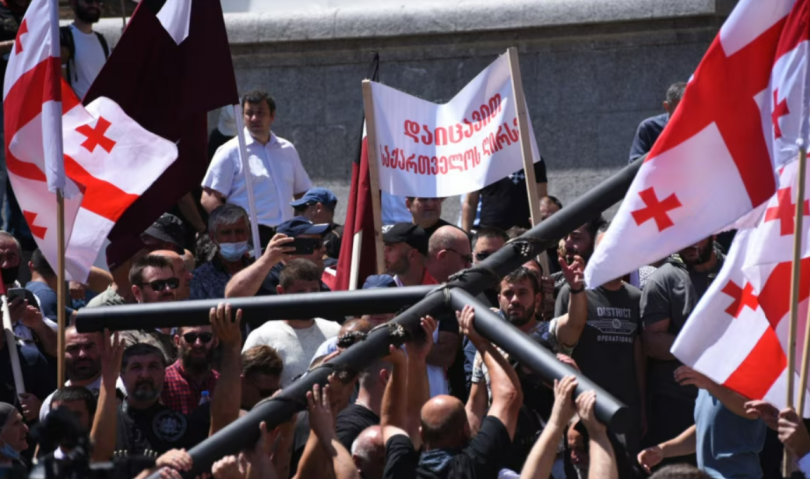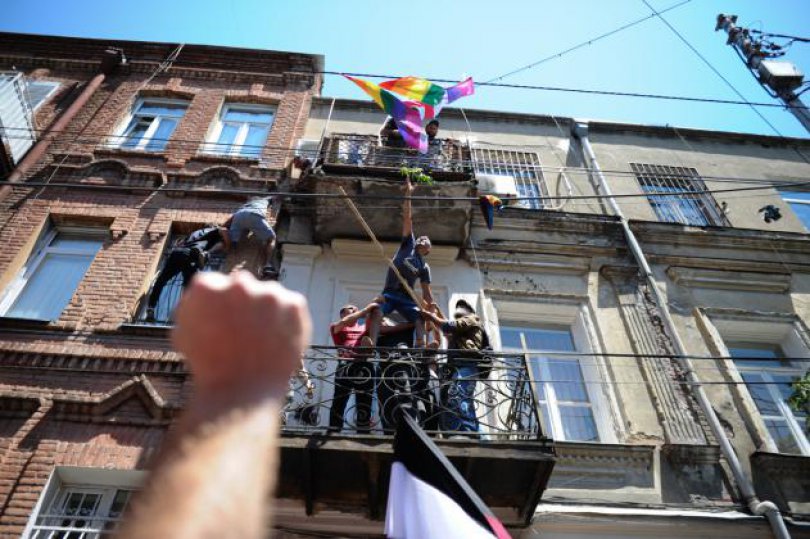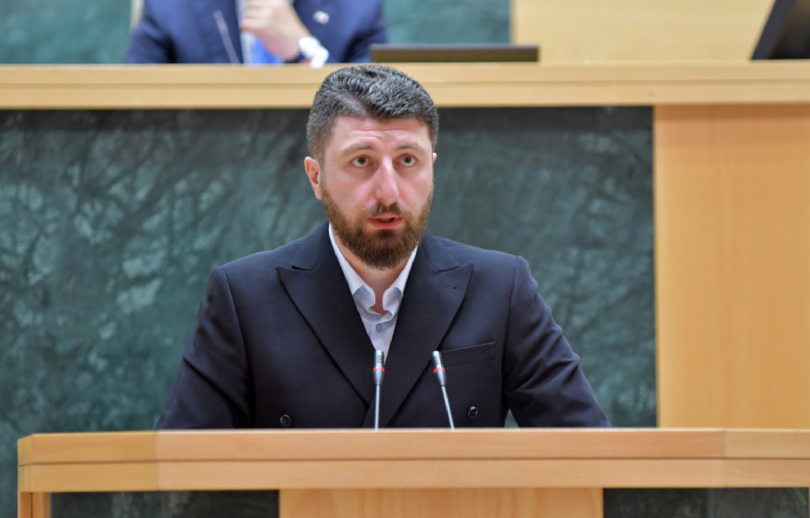
Leader of the Russia-linked extremist violent group Alt Info, Konstantine Morgoshia has issued a threat of violent crackdown on the forthcoming Tbilisi Pride Festival, similar to what took place on July 5, 2021.
Tbilisi Pride has said due to the authorities’ failure to punish organizers of that attack – that left 53 journalists injured and one dead – pride itself will not be held and the week will be limited to only few closed events.
“They know since July 5 that they cannot hold Pride, they have a bad experience and came up with a location, a large private property, to hold a festival. It is obvious that the Georgian people, including us, as a part of the Georgian nation and the political force representing the largest part of these people, will not allow this,” said Morgoshia vowing to “mobilize several thousand people.”
“I am sure that the PM in this case as well [similar to 2021], will stand with the absolute majority of the Georgian people,” he stressed.
The impunity for organizers of the last year’s attack has been a subject of widespread concerns both in Georgia and abroad. The growing influence of Russia-linked violent groups has gained new relevance in light of Georgia’s conduct in the context of Russia’s full-fledged invasion of Ukraine.
During his recent visit in Brussels following submission of the EU membership application, a Formula TV source has reported PM Irakli Garibashvili was handed a 20-point list of conditions Georgia has to meet or risk rejection of the candidate status, one of which being “Undue follow up/failure to punish organizers of mass violence on July 5, 2021 against journalists and demonstrators.”
The European Parliament’s recent report assessing the implementation of the Association Agreement between Georgia and the EU concluded that “Georgia has seriously backslided with respect to the basic democratic principles and key political commitments”, specifically pointing out the June 5 mass violence, stating that “The working environment in which journalists operate in Georgia has become more challenging due to political interference with media work as well as verbal and physical attacks against journalists.”
“Crucially, verbal attacks emanating from the ruling majority engender a hostile environment for the Georgian media and pave the way for physical violence. More than 90 violent attacks against journalists were reported in 2021. Violence took a dramatic turn during the Tbilisi Pride on July 5- 6, 2021, when radical and homophobic groups attacked 53 media representatives and Lekso Lashkarava, a Piverli TV cameraman, died after being beaten up. According to Georgian CSOs, the escalation into large-scale violence was encouraged by the authorities, who did not take appropriate security measures despite repeated calls from civil society to do so. Threats and violence against media representatives breed fear among journalists,” the report states.
Last year’s dramatic events were also one of the major causes why Georgia’s ranking in the Press Freedom Index of the Paris-based press freedom watchdog Reporters Without Borders declined from 60th to 89th.
Specifically focusing on the July 5, 2021 mass violence organized by Russia-linked extremists, the RSF said that “Verbal attacks and physical assaults on journalists are common. Aggressors include senior government officials, especially during election campaigns. A lynch mob’s sustained and brutal assault on 50 reporters during homophobic counter-demonstrations in July 2021, under the gaze of security forces, marked an unprecedented setback. The absence of transparency and of progress in investigations of the event demonstrate the impunity enjoyed by those who commit crimes against journalists.”
Public Defender’s Office of Georgia also released a critical statement in this regard, calling on the Government of Georgia to take effective measures to prevent and thoroughly investigate systematic violence against LGBT+ community
“Although the visibility of the LGBT+ community has increased over the years and the discriminatory attitudes in the society have decreased, this process is not accompanied by a consistent or thoughtful state policy. Moreover, the legal inaction of the State encourages inequality towards LGBT+ people in almost all areas of public life, fails to improve their quality of life and leaves them vulnerable to violence and discrimination.
An important challenge is timely, effective and accountable investigation of hate crimes. The State has not yet developed a unified strategy to combat hate crimes and its response to homo/transphobic crimes still fails to meet standards of effectiveness, timeliness and impartiality.
The Public Defender once again calls on the relevant state agencies and public figures to take effective preventive and reactive measures against alleged crimes targeting LGBT+ people and to make public statements that will help raise public awareness of equality,“ says the statement.
Georgian authorities have not yet responded to these calls, further encouraging the policy of violence against minority groups.
“We will see what kind of festival you will have a wish to hold at the end of June,” said Konstantine Morgoshia, justifying his warning with references to the “will of people” and “majority rule”.







